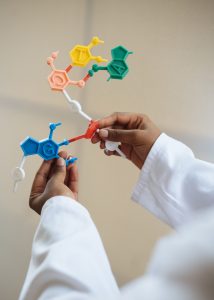About Find Ketamine
Home » About Find Ketamine
What is the Find Ketamine group about?
Find Ketamine is an evidenced-based authority site with the latest Ketamine news, safety updates, clinical research, and exclusive payment strategies.
Finding a good Ketamine clinic can be difficult. There are currently over 200 Ketmaine clinics in the United States. Some clinics are independent, with others consisting of multiple sites and/or franchisees.
Most Ketamine clinics offer intravenous Ketamine infusions. Recently, the Food and Drug Administration (FDA) approved esketamine, brand name Spravato™, for treatment resistant depression. Its route of administration is intranasal, inhaled through the nasal membranes.
IV Ketamine still remains the most common form of low-dose Ketamine treatment but does not benefit from insurance reimbursement like Spravato™. Ketamine is available in sublingual, tablet, and intramuscular injection forms, but their respective clinical outcomes are not well studied.
Ketamine is a dissociative. Dissociative drugs act on non-opioid pain receptors, as well as modulate the glutamatergic system of the brain. These mechanisms are part of how Ketamine works to affect the symptoms of mental, pain oriented, and addiction related illness:
- Fast acting relief for Treatment Resistant Depression, PTSD, OCD, Bipolar Disorder, Anxiety, and Suicidal Thoughts.
- With an epidemic of opioid medication abuse, Ketamine is an analgesic, pain relieving alternative that does not target opioid receptors. Chronic regional pain syndrome, Migraines, and Neuropathy are 3 new condition targets in Ketamine clinics.
IV Ketamine may assist with the treatment of substance abuse, discontinuation of addictive drugs, and prevention of future relapse.
- Ketamine Assisted Psychotherapy (KAP) can be found at some clinics. Psychological treatments before, during, and after IV Ketamine sessions are called by different names and can be coordinated through the clinics themselves, your own therapist, or a 3rd party KAP specialist. All of these approaches are increasing in popularity because of research suggesting superior results from the combination of these therapies.
Finding ketamine clinics that treat all conditions and offer all services may not be easy. Each condition may require different protocols. Plus, the physicians or medical staff at each clinic may have more experience in a particular condition. For instance, chronic pain conditions require much higher doses of Ketamine than those used for mental health issues. Higher doses can lead to riskier Ketamine side effects. They also require much longer therapy sessions at a much higher price.
When considering a Ketamine clinic, searching for: ketamine clinic near me, is not enough to ensure the best treatment. Clinics vary in quality, cost, and safety.
How to find a good Ketamine clinic:
- The background, reputation, and experience of the physician responsible for your care
- A consultation with the clinic’s director, including a review of your case, and a suggested treatment plan
- Reviewing the credential levels of the medical staff on hand during infusions
- Understanding what monitoring and emergency equipment is used for your safety
- Clarifying Ketamine pricing and payment options
Ketamine treatment may be prescribed by any licensed physician. This accounts for the diversity of clinical practitioners: anesthesiologists, psychiatrists, PCPs, internists, endocrinologists and more.
Different specialities come with varying levels of exposure to, and experience with, Ketamine. Connections between a provider’s background and their Ketamine clinical experience is sometimes obvious. Other times it is not.
Always check on their experience, reviews, and outcomes. The safety and efficacy of your treatments is your first priority.
My comprehensive, step-by-step guide to ketamine therapy answers all of your questions about this extraordinary treatment.
Choose Your Favorite Format







